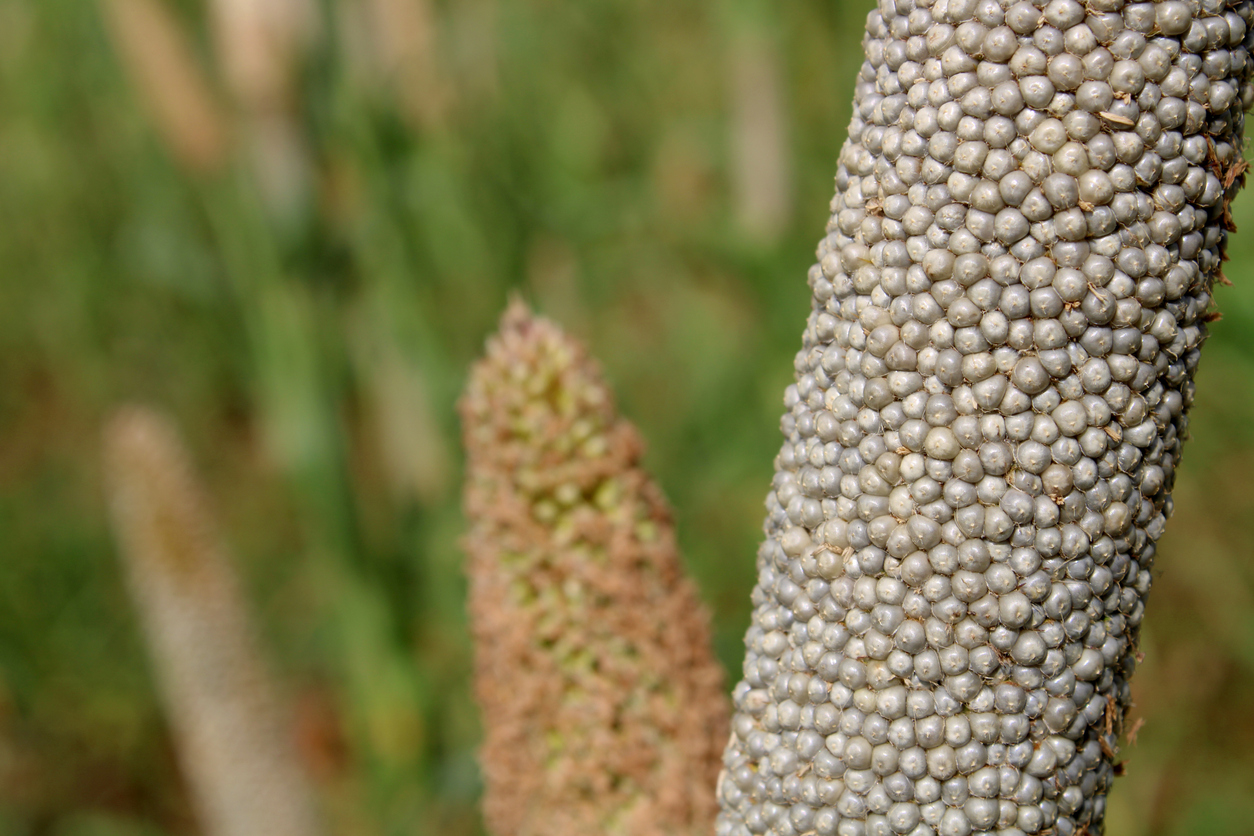
ICRISAT Develops Iron-fortified Pearl Millet
April 13, 2022| |
International Crops Research Institute for the Semi-Arid Tropics (ICRISAT) and HarvestPlus developed biofortified pearl millet, which is a low-cost dietary source of iron and zinc and has the potential to enhance the nutrition of farming families. It could also improve physical and mental performance, especially among adolescents.
Pearl millet is a staple food in the drier parts of Sub-Saharan Africa. It is considered a climate-smart crop because of its resistance to drought, heat, soil salinity, and high water use efficiency. It is also rich in protein, minerals, and dietary fiber. Using traditional breeding techniques, ICRISAT developed the first iron biofortified, extra-early maturing, drought-tolerant pearl millet variety "Chakti" for Africa.
Chakti pearl millet contains more than 65mg/kg iron content compared to the common varieties used by farmers, which have only ~47mg/kg. Breeding efforts continue to make it even more nutritious. Furthermore, Chakti matures 40 days earlier and has a 30% greater yield compared to local varieties, as well as resistance to downy mildew disease.
Read more from ICRISAT and Krishi Jagran.
| |
You might also like:
- Popular Pearl Millet Hybrid Improved through Genomics-Assisted Breeding
- Millet Genome Sequenced by Scientists from 10 Countries
- ICRISAT Releases Iron-biofortified Pearl Millet
Biotech Updates is a weekly newsletter of ISAAA, a not-for-profit organization. It is distributed for free to over 22,000 subscribers worldwide to inform them about the key developments in biosciences, especially in biotechnology. Your support will help us in our mission to feed the world with knowledge. You can help by donating as little as $10.
-
See more articles:
-
News from Around the World
- IPCC Report Reveals Agriculture can Halve Emissions by 2030; Help Climate Change Adaptation
- Trends on GM Foods Consumer Perception Help Identify Policy Recommendations
- ICRISAT Develops Iron-fortified Pearl Millet
- Nigeria Starts National Performance Trials for TELA Maize
- Genome Sequence of Forage Grass Now Available
- Brazil's Biotech Sugarcane Area to Double in 2022
- Shifting to Non-GM Feed Ingredients Less Beneficial to Environment, Producers and Consumers - Report
- Agri Experts Help Identify Behavioral Factors that Influence GM Tech Acceptance
-
Research Highlights
- Bacteria that Kills Fungus Affecting Sugarcane Yields Discovered
- Protein Discovery Reveals Mechanisms of Nitrogen Assimilation in Plants
- Researchers Reveal Genetic Basis of Watermelon Seed Size
-
Plant
- Novel Plant Breeding Techniques Boosts Cereal Production
-
Read the latest: - Biotech Updates (January 21, 2026)
- Gene Editing Supplement (January 28, 2026)
- Gene Drive Supplement (February 22, 2023)
-
Subscribe to BU: - Share
- Tweet

